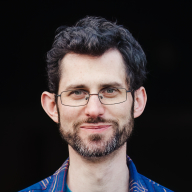
Jeff Kaufman 🔸
Bio
Participation4
Boston-based, NAO Lead at SecureBio, GWWC board member, parent, musician. Switched from earning to give to direct work in pandemic mitigation. Married to Julia Wise. Speaking for myself unless I say otherwise. Full list of EA posts: jefftk.com/news/ea
Posts 115
Comments1070
Topic contributions1
Thanks for sharing this! @Julia_Wise🔸 and I also decided to give more in 2025 (or early 2026), from a combination of pressing funding gaps and wanting to pull giving forward because of Anthropic donors.
What kinds of rooms would be better cleaned by the 4 smaller lamps vs. the 1 larger lamp (and whether that's the most salient difference between Aerolamp and Nukit)?
I think the biggest difference between the Aerolamp and Nukit is the bulb: the Aerolamp uses a Care222 bulb which I expect to last much longer.
When it would be better to invest in a Far-UVC lamp vs. a high-CADR air purifier? I think HouseFresh is fairly trusted as a review site ― to be more concrete, who would you recommend buy a CleanAirKits Luggable over a UVC lamp?
It depends on how important it is to you to minimize noise, and how big the room is (since filter-based purifiers clean a given amount of air per minute while UVC depends on the size of the space). https://illuminate.osluv.org/ is not super user-friendly, but will calculate the CADR-equivalent for you of a given UVC setup.
Thanks for clarifying! I do think in a context like this one, where people are thinking about why offices etc don't install far-UVC, your friend's phrasing is likely to confuse people. For example, if I recommended someone not buy a car because it only had a one-year lifespan, I think they'd be grumpy if they later learned I meant it would only last one year of 24/7 operation. When we talk about "lifespan" we're normally bringing in assumptions about expected usage.
most average only 1 year lifetime or less with decreasing efficacy over time, have to replace the entire system when it's spent, adds to electricity cost when in use, and you need to install a lot of them for it to be effective because when run at too high power levels they produce large amounts of hazardous ozone
I think this is true for many options, but not the Aerolamp:
- It is built around the Ushio Care222 B1. This is a long-lasting design, rated for 10,000 hours before falling below 70% output. That's one year of 24/7 usage, five years of working hours, or much longer if run less often.
- They do use electricity, but at 11W it's a negligible 1-2¢ per hour.
- Even one Aerolamp cleans a lot of air. You can model efficacy with Illuminate.
- Well filtered lamps do not produce a lot of ozone. Unless your building is incredibly well sealed ozone levels would go up if you opened a window. If you're very concerned you can run an air purifier that includes an activated carbon layer, which many do.

I think maybe that wasn't public until 2026-01 with Dario's "All of Anthropic’s co-founders have pledged to donate 80% of our wealth"?